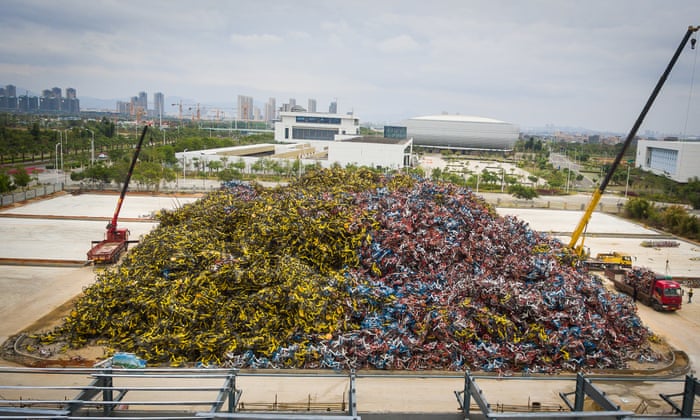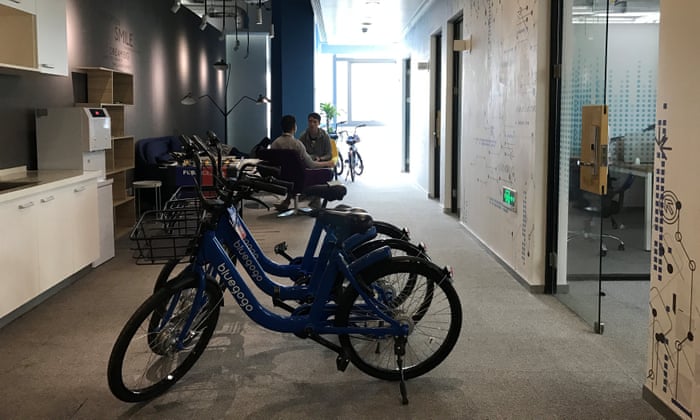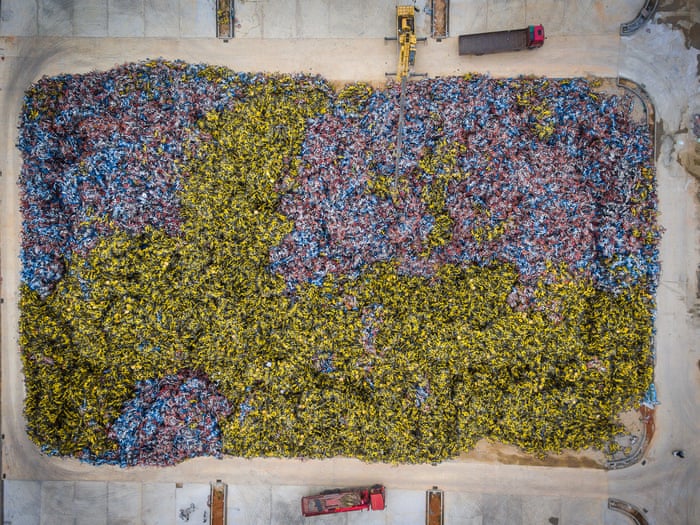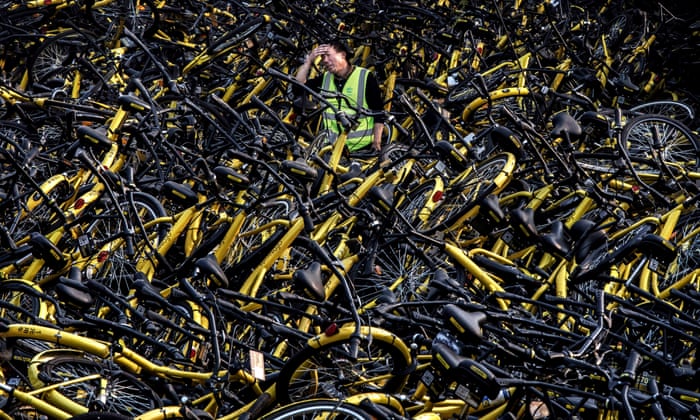By Benjamin Haas

Thousands of share bikes laid to rest in the south-eastern Chinese city of Xiamen.
At first glance the photos vaguely resemble a painting.
On closer inspection it might be a giant sculpture or some other art project.
But in reality it is a mangled pile of bicycles covering an area roughly the size of a football pitch, and so high that cranes are needed to reach the top; cast-offs from the boom and bust of China’s bike sharing industry.
Just two days after China’s number three bike sharing company went bankrupt, a photographer in the south-eastern city of Xiamen captured a bicycle graveyard where thousands have been laid to rest. The pile clearly contains thousands of bikes from each of the top three companies, Mobike, Ofo and the now-defunct Bluegogo.
Just two days after China’s number three bike sharing company went bankrupt, a photographer in the south-eastern city of Xiamen captured a bicycle graveyard where thousands have been laid to rest. The pile clearly contains thousands of bikes from each of the top three companies, Mobike, Ofo and the now-defunct Bluegogo.

Anger as Chinese bike sharing firm shuts up office with riders' deposits
Once hailed as “Uber for bikes”, China’s cycle hire startups allowed users to unlock GPS-enabled bikes with their smartphone, and drop them off anywhere without the need to park it at a dock.
Bluegogo’s bankruptcy last week sparked questions about the future of dockless bike sharing in China, amid concerns there are too many bikes and insufficient demand.
In an open letter apologising for his missteps, Bluegogo’s chief executive said he had been “filled with arrogance”.

A share bicycle graveyard viewed from the air in Xiamen, south-east China.
Customers are charged just pennies per 30 minute ride, but competing companies have flooded cities with bikes to ensure cycles are always available.
The top two firms have each raised more than $1bn (£750m) in funding.
Shanghai currently has 1.5m shared bikes on the streets, and despite its population being three times greater than London, that number far outstrips the 11,000 Santander Cycles peppered throughout the UK capital.
Shanghai currently has 1.5m shared bikes on the streets, and despite its population being three times greater than London, that number far outstrips the 11,000 Santander Cycles peppered throughout the UK capital.

A mechanic from bike share company Ofo stands amongst damaged bicycles needing repair in Beijing.
The large number of cycles on Chinese streets have led to scenes of clogged sidewalks no longer fit for pedestrians and piles of mangled bikes that have been illegally parked.
But the scene in Xiamen appears to be one of the largest amalgamations of discarded bicycles, with trucks unloading bikes from around the city.

